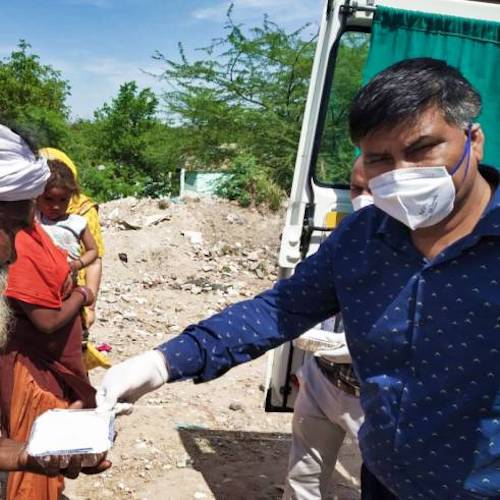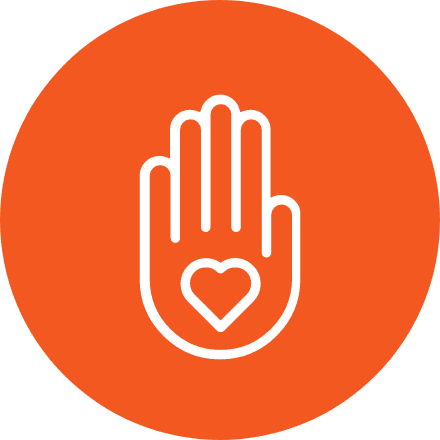Ritu Ranu is helping
older
people in India.

"Many older people can't afford to buy the medicines themselves. Even if they could, going to the pharmacist puts them a risk of acquiring the virus as people gather around these places and they become crowded."
Ritu Ranu, India
Meet Ritu Ranu
HelpAge India’s healthcare program provides services for older people at the doorstep through mobile health units that offer free consultations and access to medicines. Working with more than 100 hospitals, HelpAge India carries out approximately 40,000 cataract operations every year and offers palliative care to older people, especially those who have cancer. Their service also focuses on disseminating information and raising awareness of health issues.
Ritu Rana, Mission Head of Healthcare at HelpAge India says:
“As soon as COVID-19 started to spread in India, we looked at how to continue to provide health services and medicines for older people at their doorstep. Our vans (healthcare mobile units) visit older people every week and bring them the medicine they need. As the country is on lockdown, we are unable to visit older people and their medical supplies are running out.
Many older people can’t afford to buy the medicines themselves. Even if they could, going to the pharmacist puts them a risk of acquiring the virus as people gather around these places and they become crowded. They don’t have access to medical support to treat their ongoing health conditions. Only emergency services are available.
We are looking into options to help in coordination with the local administration and volunteers. We have started initiatives in a few places but we haven’t found a solution for other places yet.
Older people are also finding it difficult to refill groceries. Some older people are alone. Many had help from a person who would provide care and support for them, cook their meals, help with cleaning – that person isn’t able to come anymore. It’s not just about medical support, it’s also other basic needs. Our volunteers are trying to help with groceries but there are many restrictions. We also need to ensure that they are protected from the virus.
HelpAge India has a toll-free helpline service that older people can use to talk to a counselor. Counselors speak to the callers about their wellbeing and safety and respond to their queries, for example, ‘should we wear masks’? They worry about how long the lockdown will last if it is extended. They worry that they won’t be able to get any help with their basic needs, with getting groceries, or with their health conditions.
Some older people have their families who can go and buy groceries and refill their medicines for them. Home delivery is allowed with a pass. But for those with less income, that isn’t an option. They can’t go to work, construction places, factories they have all closed. They can’t even afford to pay their rent. Where can they find the money to eat? For older people, this is worst because they can’t get the medicines and other essential care supplies they need. It’s a matter of survival for them.
Since the lockdown came into force people have started to migrate to their villages. I worry if the infection spreads to rural areas it will be difficult to contain. We are trying to partner with corporate organizations to provide health protection kits and are coordinating the distribution with the local administration. In some places we’re on standby, waiting for the go-ahead.
I have seen videos of people helping each other, police distributing food to homeless people, and telling people about the importance of social distancing. There are community kitchens running to provide food. And we keep working very hard, focusing on two areas: health protection and prevention of the disease. But the situation changes very quickly and so does our approach.
It’s difficult while I’m at home. I have to cook, clean, I have my children in the house, and they want my attention. I’m physically here with them but mentally I’m at work. There’s no difference between home and work, Sunday and Monday!”



